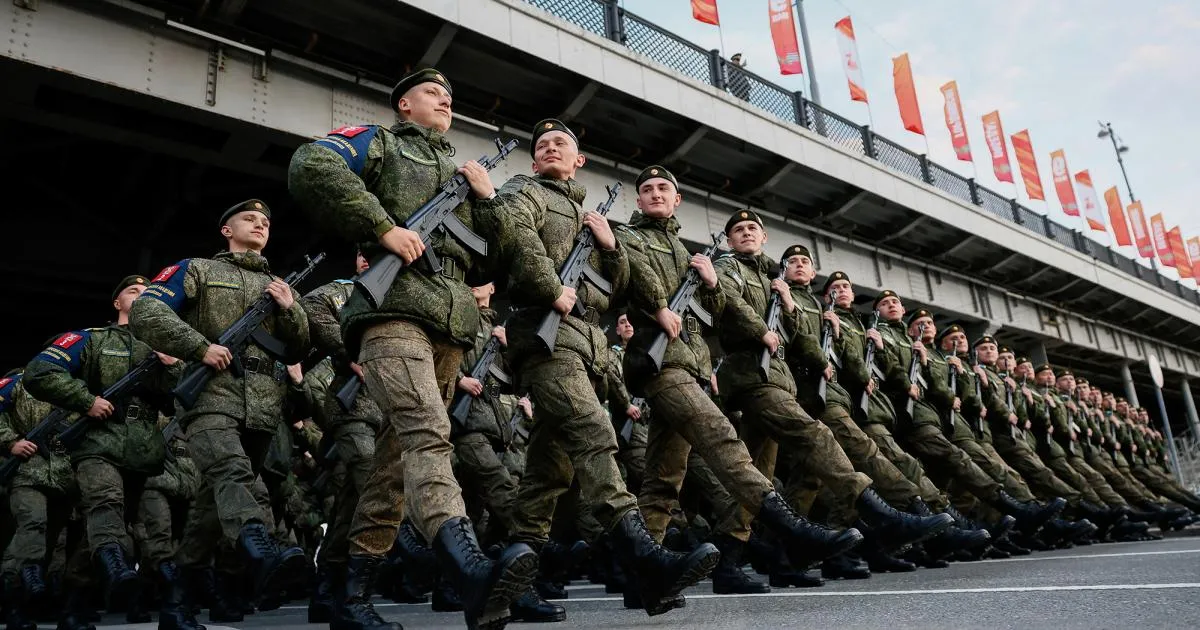
For years, Russian President Vladimir Putin has exploited the annual Victory Day celebration on May 9 to underscore his own significance. This commemorative event marks the Soviet victory over Hitler in World War II. The Soviet triumph in 1945 is among the few historical milestones that genuinely unite the Russian populace. As Putin’s regime evolved, he capitalized on this unity to bolster his image, personalizing the occasion and appropriating its national significance.
One notable example is the Immortal Regiment, a civil society organization that attracts hundreds of thousands of ordinary Russians to march with portraits of their ancestors who fought in the war. Under Putin's direction, this movement has been fully integrated into the Kremlin's control. In 2015, during the 70th anniversary of Victory Day, Putin himself led one of the marches through Moscow, further intertwining the event with his personal narrative.
However, since Russia initiated its “special operation” in Ukraine in 2022, the significance of the annual holiday has shifted towards contemporary interpretations. The Kremlin has aggressively framed the ongoing conflict as a continuation of the Great Patriotic War against the West—an enemy historically represented by figures such as Napoleon and Hitler, now embodied by Ukraine and Europe. This narrative has become a cornerstone of Russian state propaganda, with the Victory Day parade and associated rituals aimed at solidifying this perception among the populace.
Given these dynamics, Putin is determined to commemorate the 80th anniversary of the Soviet victory with considerable pomp. He aims to demonstrate that Russia is not isolated from the global community, inviting representatives from the so-called world majority—countries from the global South that Putin envisions himself leading informally—to participate in the celebrations. This year’s parade will feature soldiers from Myanmar and VIP guests from nations such as Equatorial Guinea and Burkina Faso, despite their historical disconnection from the 1945 victory.
Notably, one historic ally will be present: China, represented by its powerful leader, Xi Jinping, who recently met with Putin at the Kremlin. This display of unity between Moscow and Beijing holds significant symbolic weight, yet it’s evident that Xi requires Putin much less than the other way around. Critically, the primary World War II allies of the Soviet Union have been absent from Putin's celebrations, which raises questions about Russia's global standing.
Underlying this year's Victory Day is a significant transformation in the relationship between Russia and the United States, particularly since Trump’s return to office. The initial Russian euphoria surrounding improved relations has faded; nevertheless, many Russian elites and ordinary citizens still harbor hopes that the Trump administration could mediate a resolution to the ongoing war in Ukraine. For Putin, a new U.S. administration presents an opportunity for favorable economic negotiations amid rising challenges.
While neither Trump nor any representatives from his administration will attend the Victory Day festivities, Kremlin rhetoric has positioned the United States as a historical partner, contrasting sharply with its current portrayal of Europe as the main adversary. This marks a significant shift in perspective, as historically, the U.S. has been viewed through a lens of suspicion and rivalry. With Trump’s peacemaking efforts, many Russians now see the U.S. as a pragmatic ally in negotiations to end the war.
Recent surveys conducted by the independent Levada Center reveal a growing desire among Russians for peace talks, with a significant majority supporting U.S. involvement in negotiations. By February 2025, 70% of respondents believed that the U.S. should be part of discussions with Russia, reflecting a dramatic shift in public sentiment. This newfound optimism correlates with rising approval ratings for Putin and his foreign minister, Sergey Lavrov.
This evolving perception of the United States is accompanied by a backdrop of economic challenges. Many Russians now associate the prospect of peace with potential economic revitalization. The ongoing conflict has impacted oil revenues, a crucial component of the Russian economy. As such, there is a growing acknowledgment among the populace that a resolution—with U.S. support for Russia's demands—could lead to sustainable peace and beneficial economic relationships.
Despite the increasing call for peace, many Russians continue to grapple with conflicting desires. While some benefit from the current military economy, others fear that peace may threaten their livelihoods. The Kremlin has seized upon this sentiment, encouraging military enlistment with promises of lucrative contracts. The longer the war drags on, the more precarious Putin's position becomes, as he must navigate rising public expectations for peace while managing the economic fallout of prolonged conflict.
Ultimately, the Kremlin's rigid structure is unlikely to dissolve once the guns fall silent. With a backdrop of heightened repression and the ongoing war against civil society, Putin faces a delicate balancing act. The expectations of peace and prosperity must align with the regime's demands for loyalty, leaving little room for dissent. As Russia stands at a crossroads, the question remains: can Putin negotiate a peace that satisfies both domestic and international expectations without destabilizing his grip on power?